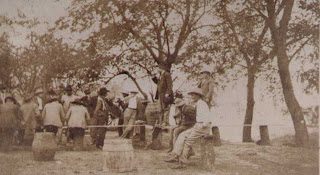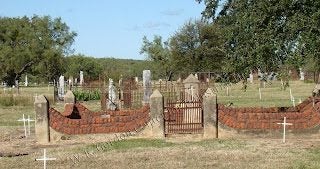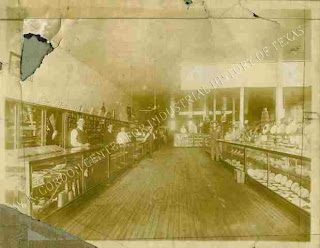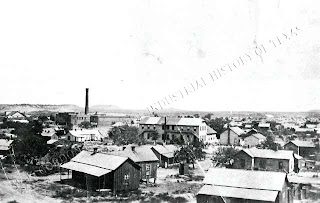When the Carnival comes to town
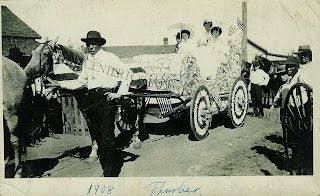
“The working families that lived in Thurber had few watches or clocks for their daily lives were governed by whistles. At the company power plant, engineers scanned clocks with large dials and numbers and sounded the whistles at designated times.” (Thurber Texas; the Life and Death of a Company Coal Town, John S. Spratt, 1986 p. 26)
Life in Thurber was not easy. Men worked long days in the mineshafts, in the brick plant, or in the company offices while others filled support roles in stores and businesses. However, life in Thurber was not all work. Texas and Pacific Coal Company and its subsidiaries provided a variety of entertainment outlets for their employees. Thurber had its own baseball team, an Opera House, water sports at both Big and Little Lake and events organized by local clubs and lodges throughout the year.
But according to former Thurber resident, Bill Boyd, “The Fourth of July and Labor Days were Holy Days in Thurber,” and the company supported these celebrations by offering special opportunities to relax and socialize which sometimes stretched over two or three days. Both holidays began with a parade. Community organizations decorated their wagons with ribbons and flags and the queen of the day dressed in her finest and lead the procession through the downtown plaza area. Large crowds turned out for the opening ceremony followed by a company-sponsored town picnic.

During the 1920s Thurber often celebrated the Fourth of July with a water carnival held at Little Lake. According to an article, that ran in the Fort-Worth Star Telegram on June 21, 1922, the American Legion post hosted the big event. The water carnival included swimming and diving contests, tub races, water polo, and even a bathing girl review. A follow-up article in the July 5, 1922 Dallas Morning News claimed two to three thousand attended, some from as far away as Dublin or DeLeon. Participants also enjoyed cattle roping, cowboy shows, foot races, and bicycle races.
Traveling carnivals came to town for both holidays. Texas and Pacific Coal Company advertised in newspapers papers and took bids from carnival companies which provided ferris wheels, balloon men, and other acts. John Spratt remembered trips from his home in Mingus (Thurber Junction) to visit Thurber when carnivals were in town. He recalled prizes given to the victors of games of chance, shooting galleries, gadgets for testing skill and strength, and baseball booths. Food booths, minstrel shows, strange animal exhibits, freak shows, and even snake charmers tempted and thrilled attendees as well.
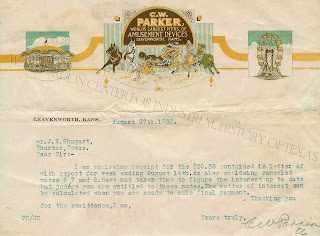
Holiday celebrations usually ended with a dance and a fireworks show. The company invested a great deal of time and money in preparation for these two holidays, because they benefitted from them. Among the large, diverse immigrant population in Thurber, the Fourth of July and Labor Day celebrations provided an opportunity for the company to encourage patriotism and Americanization. These recreational days of teamwork and togetherness unified residents in a way that the company hoped would promote loyalty, safety, and satisfaction among employees.
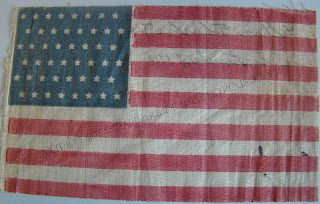
To learn more about leisure and recreation in Thurber, visit the Gordon Center’s summer exhibit, “A Company Town at Play: Sports in Thurber, Texas.”

